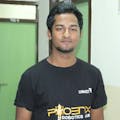

- Categories:
- Grand Prize
- Best Board Design
- Best Edge AI Technique
- Best Applied Solution
- Best Educational and Social Impact
Grand Prize
The winner was awarded a Paid trip to Taiwan to present in November 2025 + $2500 Award
Best Board Design
The winner was awarded a Paid trip to Taiwan to present in November 2025
Best Edge AI Technique
The winner was awarded a Paid trip to Taiwan to present in November 2025
Best Applied Solution
The winner was awarded a Paid trip to Taiwan to present in November 2025
Best Educational and Social Impact
The winner was awarded a Paid trip to Taiwan to present in November 2025
Overview
Register for the Edge AI Giveaway today!Harness the power of edge AI to protect our planet!
You can earn giveaway entries for participating in Competitions and Challenges, but you have to register for the Giveaway first in order for your hardware application, proposals, or project submissions to count toward your total number of entries.
We are calling on engineers, developers, and technologists worldwide to propose innovative Edge AI solutions that address critical environmental challenges, with a focus on wildlife protection, deforestation prevention, and ecosystem monitoring.
As climate threats accelerate and biodiversity declines, real-time, intelligent systems deployed at the edge can help transform how we protect and restore our natural world. This competition invites forward-thinking projects that leverage low-power, edge-deployable AI to make a measurable environmental impact.
Your idea can be based on any of the following reference applications, and beyond :Wildlife Anti-Poaching:
- Cameras detect human presence and activity (visual).
- Acoustic sensors detect gunshots, vehicle sounds, or animal distress calls (audio).
Forest Health Monitoring:
- Drones with high-resolution cameras capture images of forest canopy and undergrowth (visual).
- Acoustic sensors record the sounds of chainsaws (indicating illegal logging) or changes in animal soundscapes (suggesting biodiversity shifts) (audio).
Marine Ecosystem Monitoring:
- Underwater cameras capture footage of coral reefs, fish populations, and marine debris (visual).
- Hydrophones record whale songs, ship noise, and other underwater sounds (audio).
The competition does not have limitations on the hardware, software, or cloud services used, this is the perfect opportunity to use your imagination - innovate a creative solution to a difficult problem you identify with!
We always encourage using open source technologies and libraries like openCV, ROS. You can also use any commercially available products.
Projects will be awarded points on their ability to solve unique convervation tech technical challenges, demonstrating effective problem solving, technical efficiency, and the ability to really serve conservation scientists and organizations.
In your submission, you will be asked which track below you will be participating in:
Track 1: Idea to PrototypeYou are just starting a new project and looking to create a prototype. Whether it's a biodegradable PCB that can be deployed in the field, or a new low-power-based PCB, or a new mechanical design for field deployment, leverage this competition to apply for R&D hardware and resources to jump start your idea.
Track 2: Prototype to MarketYou have an existing prototype that is breaking barriers to go to market. You are working with conservation specialists and doing field research with your device. We'd like to see your prototype iteration journey. Use the manufacturing voucher to help with R&D costs.
Track 3: FAST TRACKYou have an existing project that has documentation on Hackster and has **proven market validation**. You have been working on the project for years, have real deployments, and/or have won prizes and awards from outside Hackster, you can be in the FAST TRACK. Simply submit your "existing project", with milestones accomplished and awards you've received marked in your project.
Jump-start your project:NextPCB is sponsoring $500 manufacturing vouchers to 30 applicants to help advance project builds. Use the "Apply for Hardware" application tab to put in your idea (July 29 - Aug 15).**Tip: Awards are given on a rolling basis, submit early.
Impact Partners:We’re honored to introduce our inaugural group of Hackster Impact Partners supporting this competition, connecting makers to conservation practitioners to drive real-world impact:
Community allies:
- End Wildlife Crime - an initiative focused on combating wildlife trafficking and protecting biodiversity. (Learn more from Impact Summit Keynote Recap: Sarah Maston’s Project Edison Saves Elephants)
- WILDLABS — a global community supporting the advancement of conservation technology. (Learn more from Connecting the Dots: A discussion on Private and Public Partnership and driving impact for our world)
- Interspecies Internet — exploring communication and connection across species through technology. (Learn more from Interspecies Data Collection and Interaction: The Data Logger Project)
Financial sponsor:
Gorilla Technology, a member of the EDGE AI FOUNDATION, is sponsoring the prizes of the winners. As a global leader in AI, video analytics, and cybersecurity, Gorilla as a financial sponsor, is helping us expand the reach of our tech-for-good initiatives. Their commitment to harnessing advanced technology for a more sustainable world is empowering innovators to build solutions that truly make a difference.
Prizes
Grand Prize

Best Board Design

Best Edge AI Technique

Best Applied Solution

Best Educational and Social Impact

Judges
A curated panel of world-renowned impact champions serves as advisors for the contest and helps shape the project evaluation criteria. With deep expertise in AI, business, education, open-source innovation, and go-to-market strategy, they bring invaluable insight to the challenge. Throughout the contest, we’ll spotlight their thought leadership and share the impactful work they’re leading around the world.
Jeff Reed currently leads the North American strategy and customer alliances for Microsoft embedded and IoT solutions at Avnet, a global distributor of electronic components and services. Jeff is passionate about using technology to protect wild places on the planet for future generations including his children. He lives in Montana (where he was raised), running a farm and doing conservation in the Greater Yellowstone Ecosystem. Watch Jeff's inspiring TED talk on "Can AI Help Us Speak with Wolves?"
Kate Armstrong serves as Executive Director at the Interspecies Internet initiative, where she leads efforts to foster regenerative and more-than-human futures through community-driven innovation and transdisciplinary collaboration. Read her digital publication Animals in Translation: Imagining Criteria and Frameworks for Decoding Communication in Other Species.
Adam Benzion is the SVP at Edge Impulse, a Qualcomm company. He is also the Co-Founder of Hackster. A Microsoft alumni, a recovered hardware entrepreneur, and an investor, his expertise lies in building meaningful technological solutions, that can solve pressing challenges of our time - such as wildlife and environmental preservation, by means of using open source principles and community-building initiatives. Watch Adam's Hackster Café episode on "Elephant Edge".
Dr. Rajesh Natarajan is a visionary leader with over 29 years of experience driving innovation across various sectors. His expertise spans AI, IoT, edge computing, big data, and digital transformation. He currently serves as the Chief Technology Officer at Gorilla Technology, a leading provider of products and services in security intelligence, network intelligence, and IoT technology. Watch this video from him reflecting on the importance of building meaningful technology for O.N.E. Amazon.
Dr. AnnMarie Thomas is an award-winning educator, engineer and designer. Trained as an Ocean and Mechanical engineer, she spent 19 years as a professor, including 17 at the University of St. Thomas where she founded the Playful Learning Lab. These days she is a consultant across a wide array of education projects, including work with the incredible OceanX team on ocean education, fostering the next generation of marine researchers and engineers.
Cody Goldhahn is a Mechatronic Systems Engineer at National Geographic Society Exploration Technology Lab. Cody builds incredible cutting-edge acoustic sensing, machine learning systems to enable continuous ecological data collection, from wolves in the Yellowstone to mantas in the Pacific deep sea.
Dr. Andrew Quitmeyer is the founder of the Digital Naturalism Laboratories (aka Dinalab) in the jungles of Panama and a core member of GOSH (Global Open Science Hardware). “Digital naturalism” is where insects, plants, and tropical meet open-source tech for biodiversity research. Check out his "Mothbox" - a low-cost, high-performance insect monitor featuring a power-efficient and lightweight design that enables biologists to deploy in remote locations.
James McBreen is the Senior Programme Manager, Technology and Innovation for Conservation at IUCN Centre for Conservation Action. James leads IUCN’s work on emerging technology and digital innovation to catalyse effective, equitable, and successful area-based species conservation. With over 18 years in the nature conservation sector, James has designed, led and managed initiatives and programmes at the intersection of science, policy and action at the local, national and global level in collaboration with governments, site managers, Indigenous Peoples, local communities, private sector, and conservation organisations. James is motivated by the opportunity – using science-driven data, technology, inclusive engagement and partnerships – to improve our collective stewardship of social and ecological systems.
Resources
Check out these projects - a curated list from our Hackster News writer for inspiration.
Contest Status
Timeline
Registration opens
July 2, 2025 at 12:00 AM PDT
Competition begins
July 29, 2025 at 12:00 PM PDT
Applications for hardware close
August 15, 2025 at 12:00 PM PDT
Hardware recipients announced
August 19, 2025 at 12:00 PM PDT
Submissions close
September 30, 2025 at 12:00 PM PDT
Winners announced by
Nov 12, 2025


















_eEn3XBLJgn.png?auto=compress%2Cformat&w=740&h=555&fit=max)